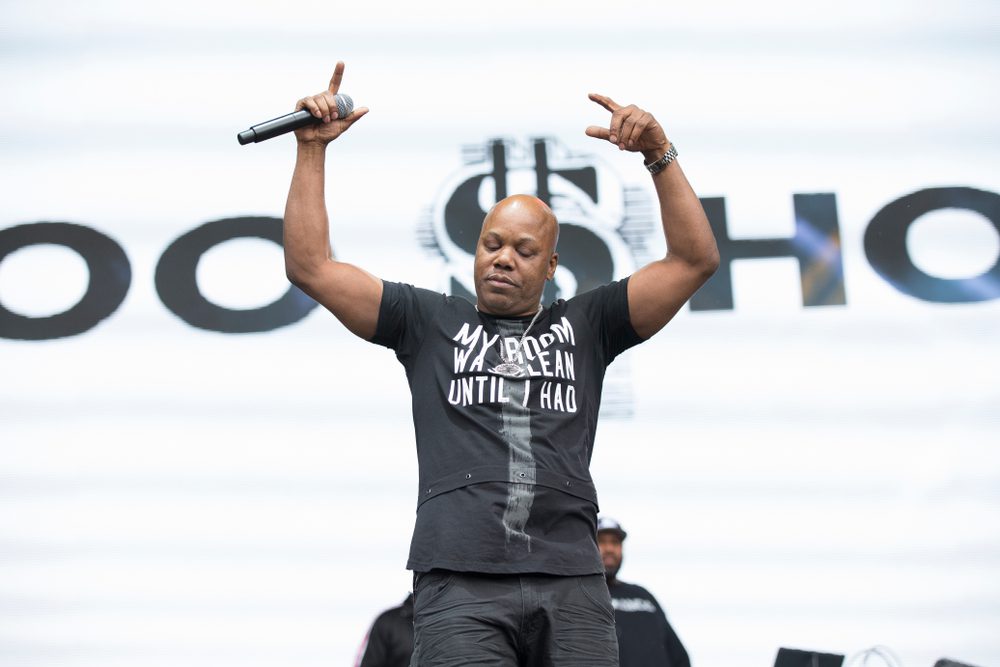
Too $hort’s 40-Year Blueprint: Hustle, Game & Lessons for the Next Gen
Too $hort has been putting on for the Bay for over 40 years — and he’s still doing it his way. From slinging tapes in Oakland to collaborating with legends like E-40 and Ice Cube, he’s built a legacy that younger artists (and fans) can seriously learn from. His journey is about independence, hustle, confidence, and smart money moves — the kind of game that never goes out of style.
Before we dive in, check out some of our favorite Too $hort content:
- Best of Too $hort: Songs You Gotta Know
- Too $hort’s West Coast Discography Breakdown
- His Best Collabs, Ranked
Also, Too $hort is coming to SLC! Learn how to win tickets.
Now let’s break down what Too $hort’s long run can teach today’s generation of artists — and why his game is still relevant in 2025.
$hort Sales: Cassettes, Customs, and the Come-Up
Back in the early ’80s, Too $hort wasn’t waiting around for a label deal. He and his homie Freddy B were recording tapes in their bedroom, dubbing them onto cassettes, and hitting the streets of Oakland to sell them straight out the trunk. That DIY energy? That was the foundation of everything.
He wasn’t just dropping random tracks either — they were doing custom songs for folks in the city, shoutouts and all. That hustle turned into buzz, and the buzz turned into real money. As he once put it, they were making tapes for the bosses of the block, and word of mouth made it pop off.
Lesson: Don’t wait for permission — build your own lane. Whether you’re handing out flash drives or dropping songs on TikTok, Too $hort proved you can go straight to the people and win.
The Label Tried It. $hort Read the Fine Print
In ’87, Too $hort dropped Born to Mack under his own label, Dangerous Music. That album moved tens of thousands before any label stepped in — no internet, no social media, just footwork. Once Jive Records saw what he was doing, they partnered up, but Too $hort kept control of his vision.
He’s always been vocal about how shady the industry can be. In interviews, he breaks down how artists get 15% on paper, but after all the hidden fees and recouping, that cut is basically gone. That’s why he stresses owning your music and knowing exactly what’s in your contract.
Lesson: Read the fine print. Keep control of your masters and build something you can own forever — like he did with Dangerous Music.
Be Yourself: Confidence Wins
Let’s be real — Too $hort didn’t sound like anyone else when he came out, and that’s what made him stand out. His style was raw, funny, explicit, and real. Whether he was clowning or giving game, he did it in a voice that was unmistakably his.
He once said that he was basically a storyteller or comedian on wax, and fans connected with that. Even when critics doubted his lyrical skills, he leaned into his own sound. He wasn’t trying to be East Coast lyrical — he was being Too $hort, and it worked.
Lesson: Don’t fake it to fit in. Find your voice, own it, and lean into what makes you different. Confidence is magnetic.
Want more Too $hort and more hip-hop throwbacks while you work?
Get Smart with Your Money
One thing Too $hort never stopped talking about? Knowing your business. He’s seen too many artists sign away everything because they didn’t read the contract. As he puts it, there’s no school for hip-hop — so you’ve gotta educate yourself.
He also encourages turning street hustle into legit investments. Whether it’s opening a business, buying property, or flipping earnings back into your music, Too $hort’s advice is simple: don’t blow your bag. Grow it.
Lesson: Money management is part of the hustle. Don’t just secure the check — learn how to keep it, grow it, and pass it on.
Longevity Is the Real Flex
How many rappers can say they’ve been active for four decades and still stay relevant? Too $hort dropped classics in the ’80s and ’90s, moved to Atlanta in the mid-’90s, and never stopped recording. He’s part of Mt. Westmore now with legends like Snoop Dogg, Ice Cube, and E-40 — proof that consistency and connections keep you in the game.
He’s done everything from headline tours to start a podcast (Too $hort’s Boombox), all while staying true to his brand. When Ice Cube calls you a “spearhead” for the whole Bay Area, that’s legacy status.
Lesson: The grind never stops. Keep evolving, keep dropping content, and stay tapped in with your audience. Longevity comes from adapting without selling out.
Explore Too $hort’s Westcoast peers:
Ice Cube: The West’s Greatest Rapper?
The Impact: Why Too $hort Still Matters
Ask almost any West Coast rapper and they’ll tell you — Too $hort paved the way. E-40 credits him for being one of his biggest influences. Oakland even named a street and a day after him. That kind of respect doesn’t come from one hit — it comes from decades of game, consistency, and giving back.
His music, his business sense, his attitude — it all adds up to a blueprint that younger artists can still use today. He didn’t just make music — he made moves. And he did it his way.
Quick Takeaways for New Artists
- Build from the ground up: Don’t wait for a cosign. Start local, be consistent, and let the fans find you.
- Own your content: Whether it’s your masters or your merch, control matters.
- Stay true to your voice: What makes you different is your superpower.
- Learn the business: Know your contracts, rights, and revenue streams.
- Keep working: Keep evolving, keep creating, and keep grinding. Success is a marathon.
Too $hort’s still out here, showing that longevity in hip-hop isn’t just possible — it’s powerful. Take notes. The game he’s been spitting for years is more relevant now than ever.









